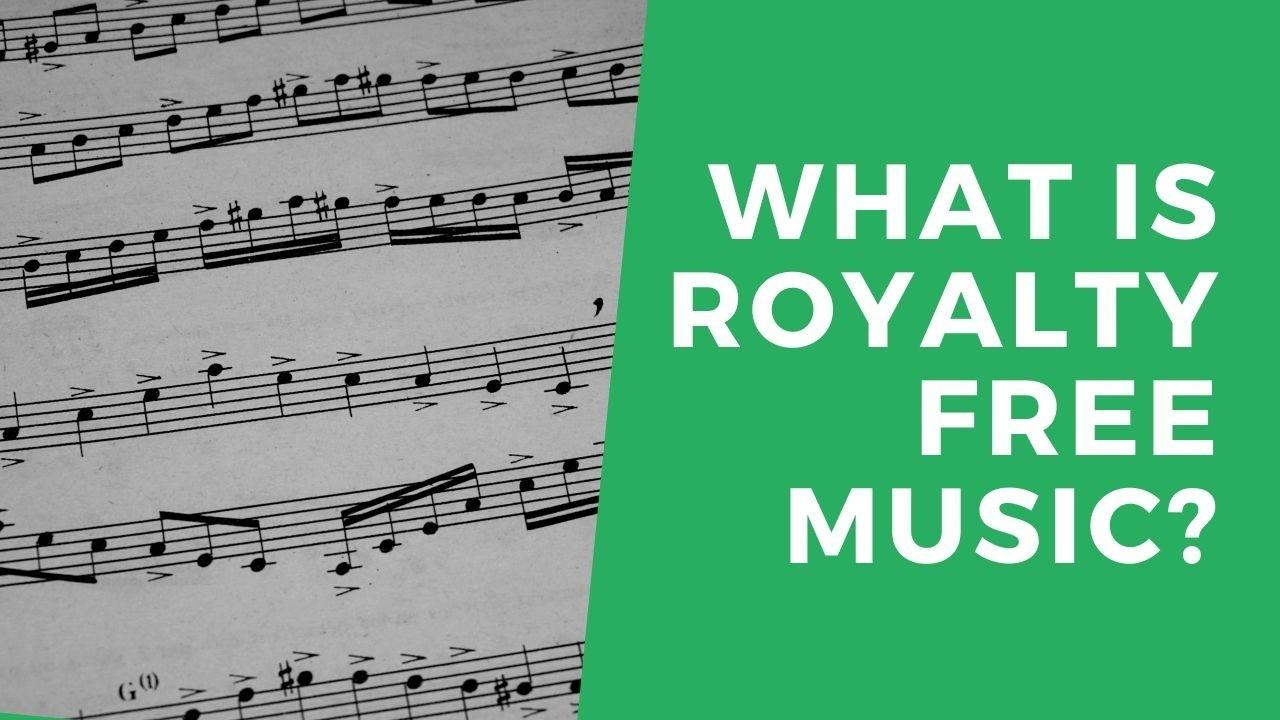What is Royalty Free Music?

What is Royalty Free music? What’s Stock Music? What’s Production Music? What’s the difference?????
Aggggggggggggghhhh!
These terms can all be so confusing. It took me months to figure out what they each mean.
In fact, the terms royalty free music, stock music, and production music, mean the same thing (most of the time)!
But that’s not even the frustrating part!
Nope.
Because they’re often used incorrectly. Awesomesauce.
The difference between Royalty Free Music, Stock Music, and Production Music?
Ok, by now you’re probably thinking “WTF. This is absurd.”
And you’re right.
These, the terms are pretty much used interchangeably, and that’s how I use them on this site.
If you want more info, you can check out this video I made.
What is Royalty Free Music?
Typically, if someone writes a song, there are several different ways to make money.
The first type of right is called a mechanical royalty. It just means that whenever a copy of the song is sold (a CD is sold, mp3 downloaded, or sheet music is sold), the writer gets paid.
A synchronization license is required whenever a purchaser buys the rights to use a song as part of some other media presentation – for example as part of a TV soundtrack.
So when you license your royalty free music on a stock music site, the purchaser pays a fee for the right to use the song. On Pond 5, for example, the purchaser must pay a minimum of $15 to use the song, a portion of which goes to the songwriter.
(Note that this is a referral link, meaning I get a commission if you purchase anything from the Pond 5 - but I don’t not get a referral for recommending that you sign up as an artist. It's just my honest belief it's the best site for folks new to licensing).
However, there is another type of royalty, called performance royalties. When a song is performed publicly, either by being broadcast or played live, the broadcaster or the venue have to pay the songwriter a performance royalty. These are collected by performing rights societies like BMI.
Did you know that public places, like shops & bars have to pay a fee to BMI for the music they broadcast? Sometimes songwriters are willing to waive these performance royalties in exchange for a larger synchronization fee.
So if a buyer purchases a synch license for your song on Pond 5 for use in a TV commercial, they only pay that single upfront fee. Then, when the TV station broadcasts the commercial, the station must pay the performance royalties to BMI. BMI then sends a check to the songwriter.
Phew. That’s complicated.
So what is royalty free music, then?????
Basically, royalty free music just means that the purchaser only needs to pay a single upfront synchronization fee, without having to worry about any other complaints or royalties to the songwriter. Then, depending on the terms of the agreement, the musician may still be eligible to receive performance royalties from broadcasters.
Unfortunately this is pretty complicated, and each royalty free music site has different terms, so you really need to review it on a case by case basis.
If you’d prefer, here’s a video explaining what is royalty free music.
From a Frustrated Producer in a Ragtag Bedroom Studio to Major Placements on TV Earning $1,000s!
My name is Evan, and I've been making music since around 3rd grade. I'm from San Diego, California, but I've lived in Washington, DC for the last 20 years.
While I still have a full-time day job, I have created systems that have allowed me to produce dozens of songs a year in my spare time.
My songs have been on Netflix, TV shows like the 90 Day Fiance, an award-winning indie film, and NPR’s “All Thing Considered.” They've also been streamed millions of times.
In addition to being a music producer, I am passionate about teaching people how they can make professional-sounding music and earn money licensing it, all in their spare time.
Thousands of musicians, like yourself, have trusted me to guide their musical journey. My YouTube videos have been watched nearly a million times. And my story has been in Forbes, Side Hustle Nation, and the Side Hustle School.





